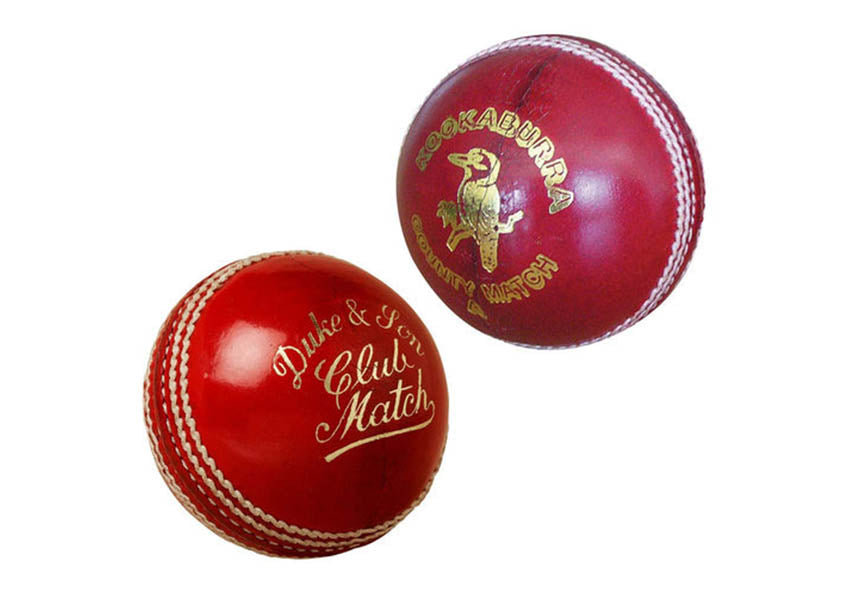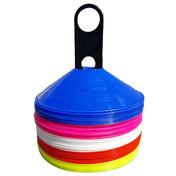The Battle for Cricket Ball Supremacy - Dukes v Kookaburra

Shopify API |
Are Dukes cricket balls set to take over the world of cricket? There are a number of cricket ball suppliers across the world and many of them produce a fine example of cricket ball suitable for club cricketers. There is a smaller number that have the capability to produce a cricket ball suitable for International cricket. Dukes supply cricket balls for use by the ECB (England) and WICB (West Indies) in international games. Kookaburra Turf cricket balls are used in South Africa, Australia and New Zealand. Whilst it does appear that Kookaburra have a monopoly to supply across the globe, there are changes and moves going on within cricket boardrooms that could shake up world cricket. According to the Kookaburra website Kookaburra currently have around 85% usage in test cricket and 100% in international one day and T20 matches. We think this should read 70% though as there are 10 test playing nations, Dukes cricket balls are used by 2 England and West Indies, SG Cricket have India leaving Kookaburra cricket balls in use with the remaining 7 nations. This is still significant though It is true, that to produce a cricket ball that appeals to both batters and bowlers, is nigh on impossible. Bowlers enjoy a bit of sideways movement, batters prefer a ball that bounces consistently with no variation of movement. Cricket balls are tested to the nth degree but the real test can only take place in the field of play. If a problem occurs with the quality of ball, it is at this point the defect materialises. It is reported that Kookaburra has had a number of test balls that have lost their shape quickly and have been of a quality not suitable for the international scene. This is where Dukes see the chance to make inroads into the supply of international cricket balls to the national governing bodies. Over the last 3 years Dukes have been testing a number of balls, with Cricket Australia and New Zealand, to see if they can produce a ball that can challenge the Kookaburra Turf ball, with positive reports. The ball will be constructed to a different specification, as the climate and ground conditions are much harsher in the southern continent. Dukes did produce one ball that was tested but it was too good and showed very little sign of deterioration over the 80 overs, so it was back to the lab to try again and tweek the formula by adjusting the surface finishes. The Dukes ball is well known to swing more in the UK and Dilip Jajodia, owner of Dukes, believes this will be of benefit to New Zealand if they took on the Dukes Test quality ball, as their conditions are similar to the UK. It cannot be certain whether the ball being hand stitched or machine stitched makes the quality any better and both Kookaburra and Dukes have versions of both, that are tested regularly. What Dukes will find hard though, is to break into the new markets when the Kookaburra contracts are due to be renewed, as many of these have been built over many years and that could be a difficult conversation, as many of the people involved are now close friends. Dukes balls are used in Auckland cricket and according to Mr Jajodia, privately some test players prefer their product. Speaking to Sportsballshop last week, Mr Jajodia feels strongly about this and says “the existence of ‘contracts’ is basically a ‘cash back’ deal which should not be tied to a time schedule and therefore amounts to anti-competitive practice. Dukes does not believe in ‘contracts’ and relies on the excellence of the product to attract repeat business. An open market will encourage price competition and product innovation. A virtual monopoly does not provide the pressure for the provider to make improvements. The White Ball situation is a good example where the ‘game’ in the mistaken belief that there is no alternative to Kookaburra, altered the playing conditions to use one ball from each end. Dukes White balls can last for 50 overs and this has been proved in recent testing by Cricket Australia.” This could be an interesting couple of years for international cricket ball supply contracts and we will continue to watch with interest.

